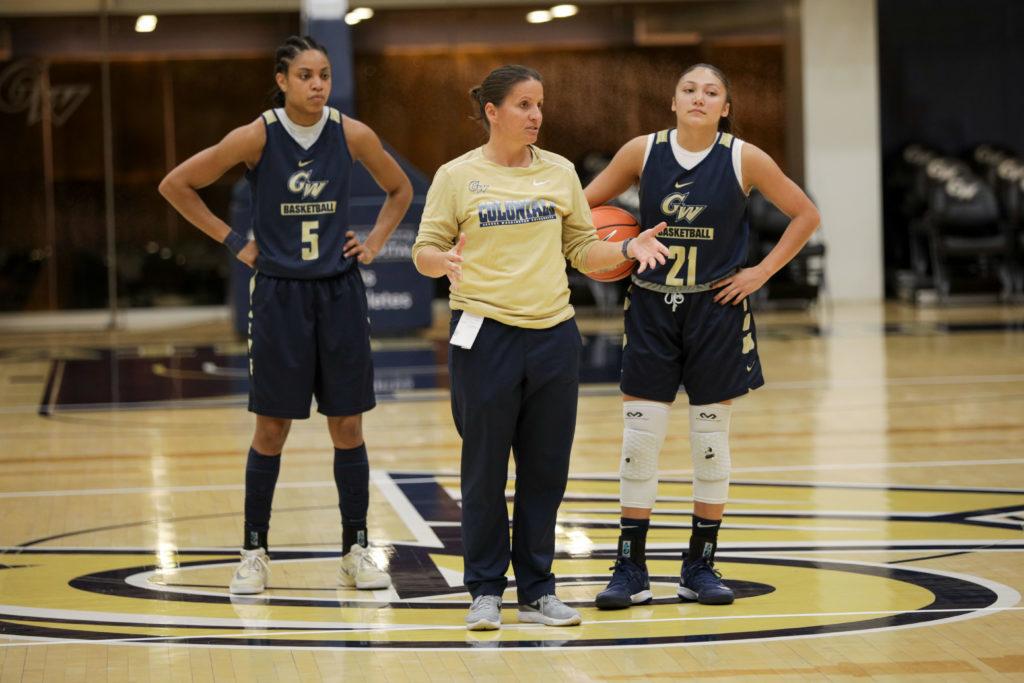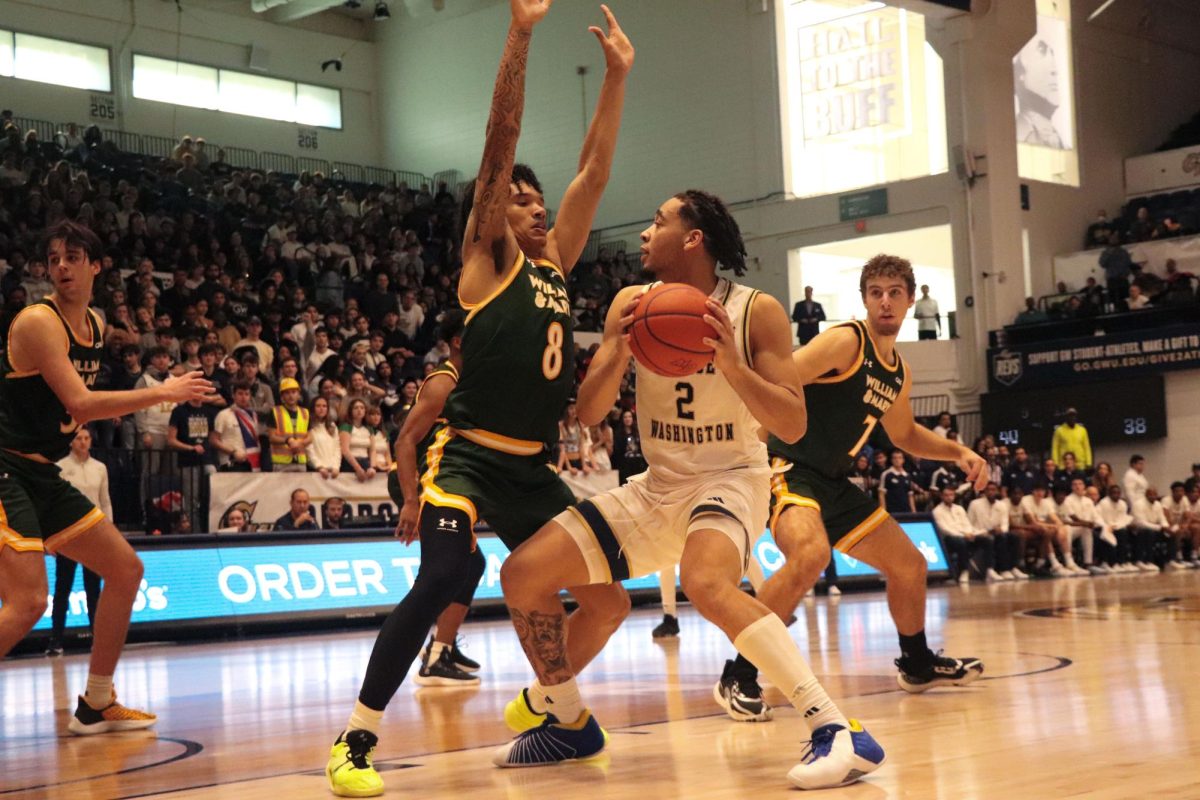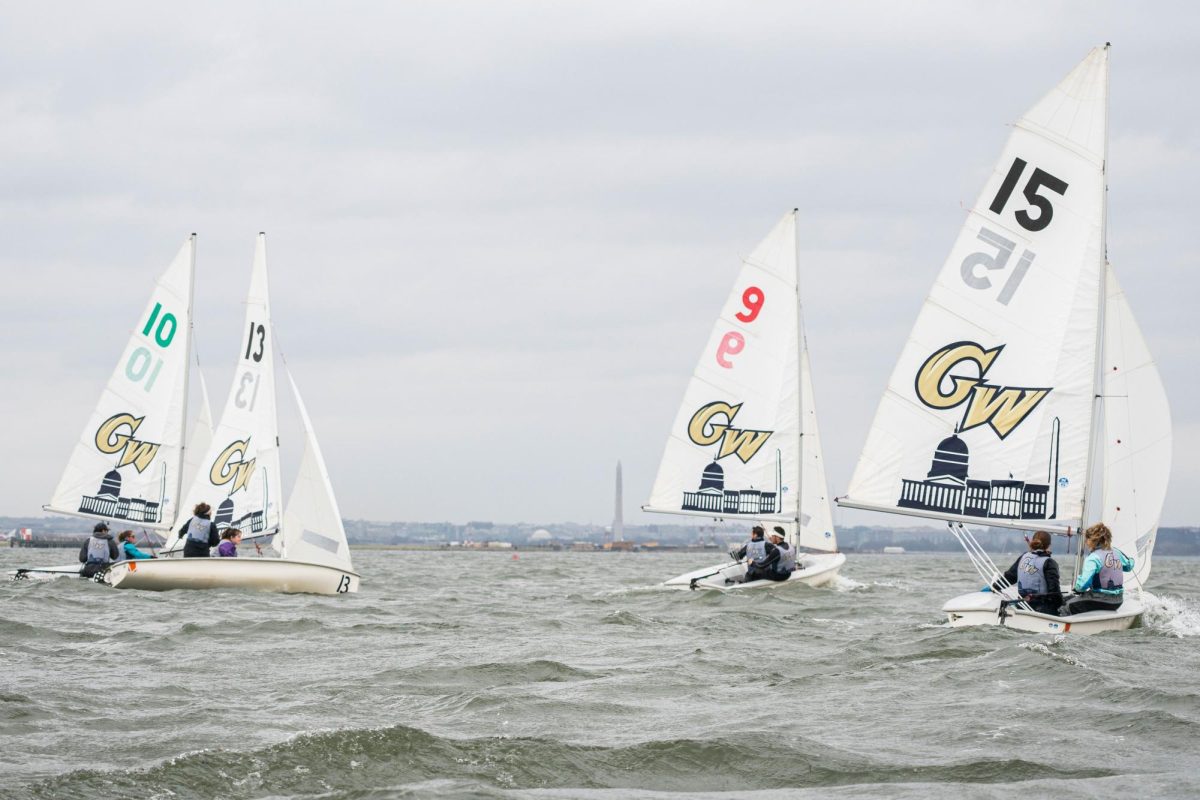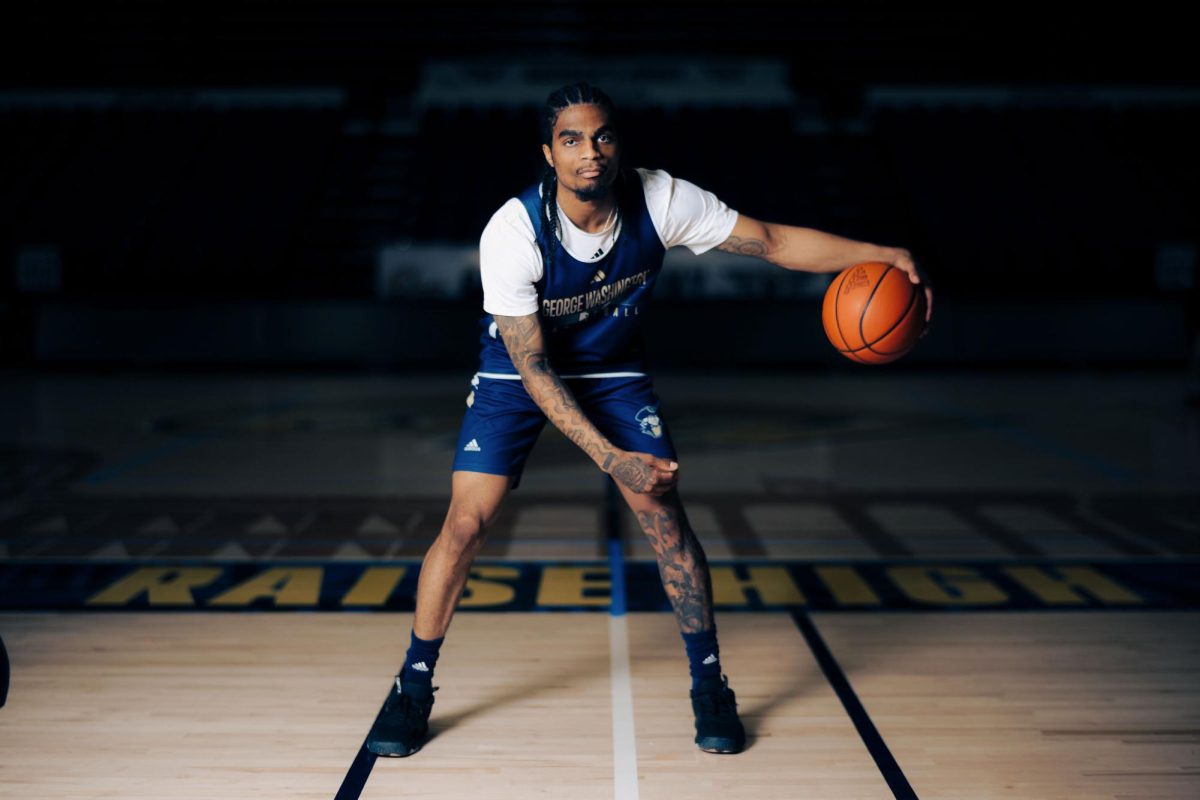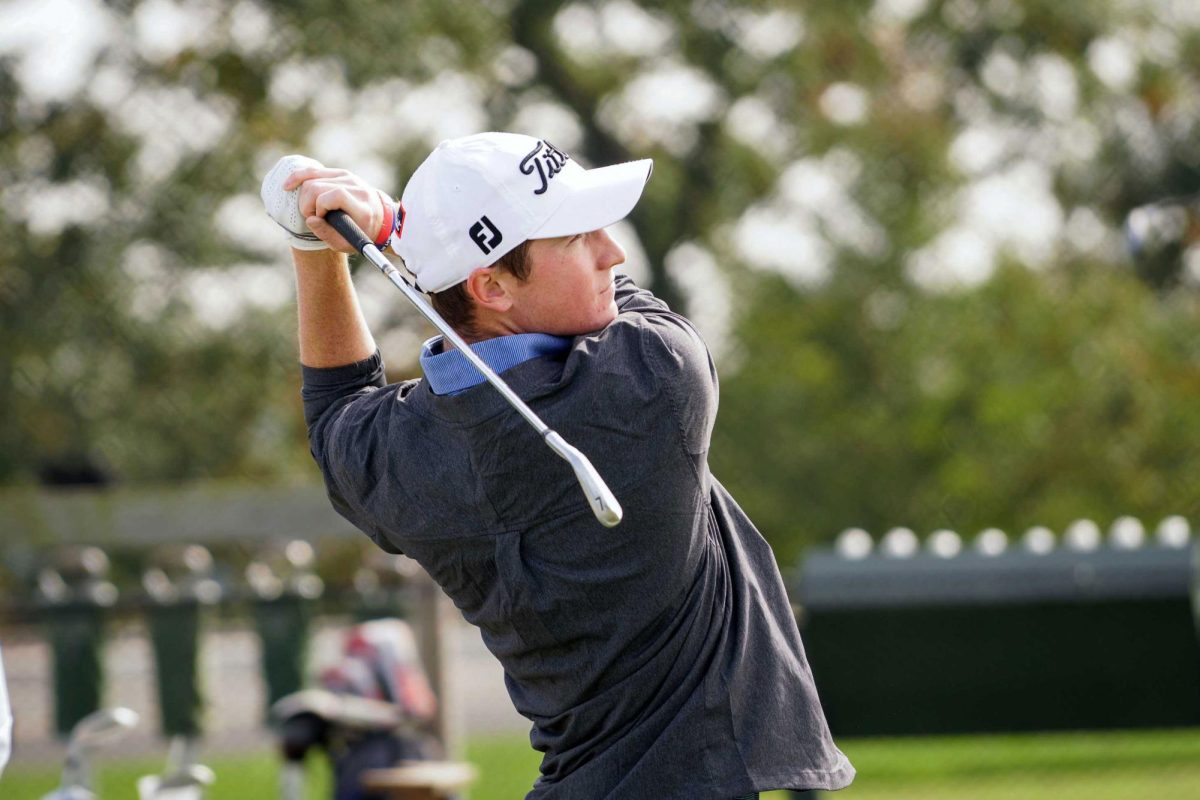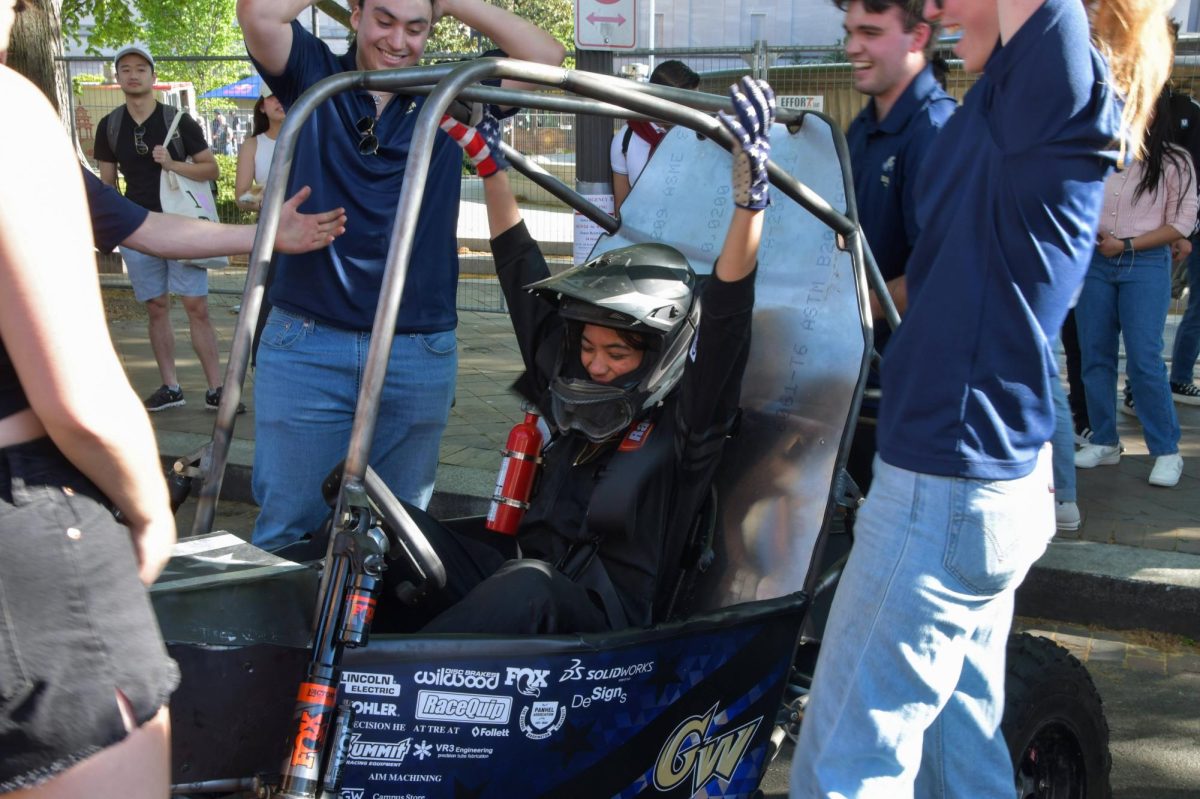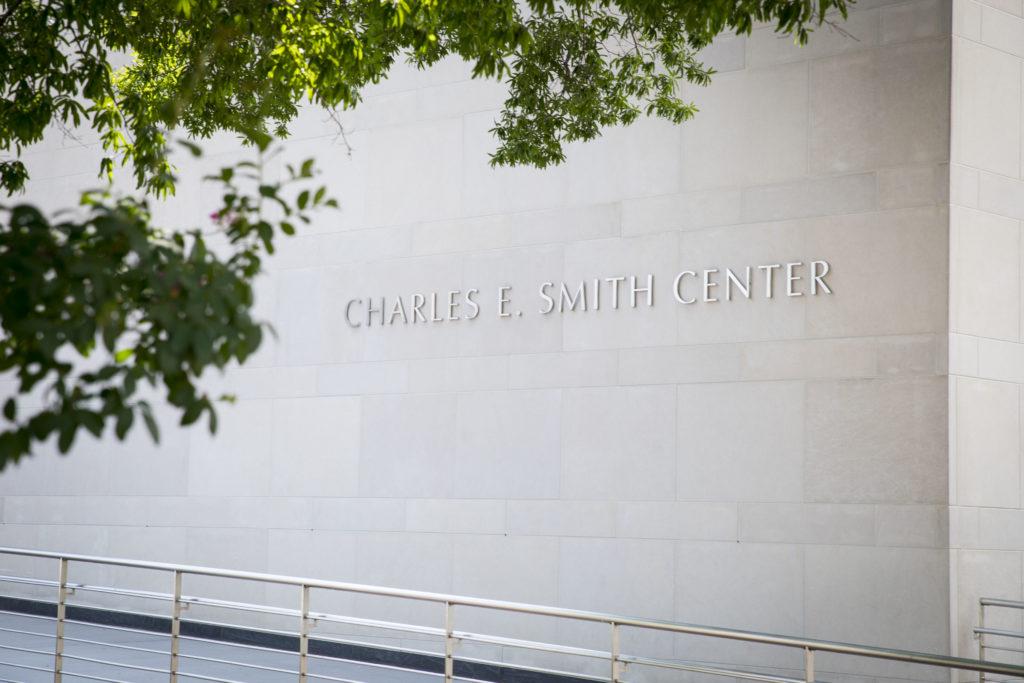Head women’s basketball coach Jennifer Rizzotti and a former men’s basketball hall-of-famer discussed the intersection of sports and social justice at an Elliott School of International Affairs event Wednesday.
Rizzotti and former men’s basketball standout Pops Mensah-Bonsu talked about racism in sports and the ongoing push for social justice in the Atlantic 10. Lindsay Krasnoff, an international sports writer and expert on sports diplomacy, moderated the event.
Rizzotti said if she had received the invitation to participate in this talk six months ago, she wasn’t sure she would have accepted. She said she didn’t know enough about the Black Lives Matter movement and has worked hard in the past few months to expand her knowledge.
“We didn’t have these conversations when I played back in high school and in college,” Rizzotti said. “I thought, ‘Well, I’m a part of the women’s basketball community. We’re diverse and we’re accepting doesn’t matter what race, sexuality, we’re one of the most inclusive communities in the world.’ I never put the work into understanding.”
She added that she had talks with her team after the police killing of George Floyd, and several members of the squad involved themselves in Athletes Driving Change, an Atlantic 10-wide organization seeking to create equality through education and service.
“It’s important for me to be a role model for my student-athletes, for my family, for my kids at home, for people to understand that it’s our responsibility to continue our evolution, regardless of our background, regardless of our upbringing, to make sure that we’re educated to make a difference going forward,” Rizzotti said.
Women’s basketball and the WNBA has been at the forefront of the BLM movement as players took knees during anthems, wore social justice warm-up shirts and even took time away from the game to advocate for social equality.
Rizzotti said women have always needed to be on the defense against sexism or critics doubting their ability to play the game, and fighting for social justice was no different.
“They’re always having to play defense,” Rizzotti said. “And this summer, they played offense, and they set the message that they felt like needed to be set. And every one of them was on board, every single player – American, non-American, White, Black, moms, single women, straight women, gay women – they were all on the same page. And it was a beautiful thing to see.”
She added that the lack of sports as a result of the COVID-19 pandemic actually benefited the team’s push for social and racial equality. She said players and fans were not consumed in normal seasons and had more time and energy to dedicate to social justice.
“It was actually the absence of sports that made us pay attention to something that’s way more important,” Rizzotti said. “When those sports came back, every one of them – soccer, baseball, football, basketball – their focus was on the right things.”
Mensah-Bonsu, a 2006 graduate and former hall-of-fame forward for men’s basketball, said he had teammates from across the United States and world, like Ukraine. But he said the topics of racial equality or social justice weren’t discussed in a sports setting until he played on the British National Team.
He added that a crowd in the Czech Republic made racist gestures toward him while he was shooting free throws, which sparked a conversation between him and his teammates about the injustices Black people and other minority groups face.
“That was probably the one situation overseas where it really stood out to me and some of my teammates were like, ‘Man, how do you feel about that? How do you feel?’ and we had to explain to them that it’s just everyday life for us,” he said.
Mensah-Bonsu said Black athletes were previously afraid to speak out about racism in sports, but the recent movement for social causes has empowered more athletes to speak up against injustice.
Mensah-Bonsu, who operates a Sports for Education and Economic Development camp in Ghana, said he wants to use his experiences playing around the world to educate future basketball players about culture and their rights. He added that he wants to reduce “culture shock” when players from Africa come to play in the United States.
“Anything I’m going through, I really want to speak to that so that they don’t have to experience it too,” He said. “It was difficult coming up. Again, I wouldn’t change anything because it made me the man I am today. And it allows me to use that experience to help others to not have to go through that.”
He encouraged attendees to vote in national and local elections and use their platform to support social justice movements. He added that he will continue to use his platform to fight for a time when “we will not be judged by the color of our skin but by our work, ethics and morals.”
“I’m glad to be a part of it because it’s history,” Mensah-Bonsu said. “And you have to look yourself in the mirror and say, ‘Which side of history do I want to be on?’ I want to be on one side when my grandkids ask me in the future what did I do, I want to tell them this is how I championed this cause.”


